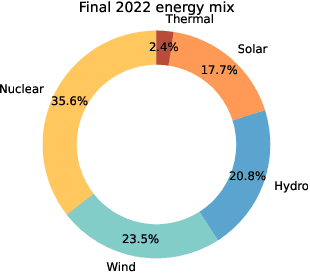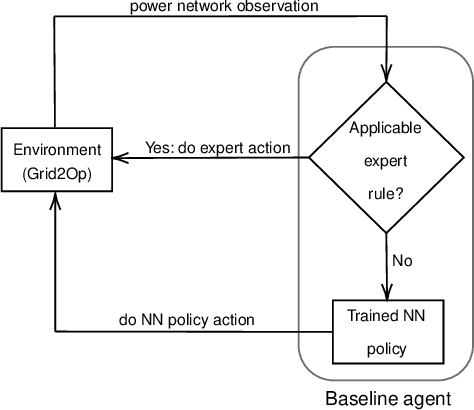Adrien Pavão
LRI
We are not able to identify AI-generated images
Dec 23, 2025Abstract:AI-generated images are now pervasive online, yet many people believe they can easily tell them apart from real photographs. We test this assumption through an interactive web experiment where participants classify 20 images as real or AI-generated. Our dataset contains 120 difficult cases: real images sampled from CC12M, and carefully curated AI-generated counterparts produced with MidJourney. In total, 165 users completed 233 sessions. Their average accuracy was 54%, only slightly above random guessing, with limited improvement across repeated attempts. Response times averaged 7.3 seconds, and some images were consistently more deceptive than others. These results indicate that, even on relatively simple portrait images, humans struggle to reliably detect AI-generated content. As synthetic media continues to improve, human judgment alone is becoming insufficient for distinguishing real from artificial data. These findings highlight the need for greater awareness and ethical guidelines as AI-generated media becomes increasingly indistinguishable from reality.
AI Competitions and Benchmarks, Practical issues: Proposals, grant money, sponsors, prizes, dissemination, publicity
Jan 09, 2024Abstract:This chapter provides a comprehensive overview of the pragmatic aspects involved in organizing AI competitions. We begin by discussing strategies to incentivize participation, touching upon effective communication techniques, aligning with trending topics in the field, structuring awards, potential recruitment opportunities, and more. We then shift to the essence of community engagement, and into organizational best practices and effective means of disseminating challenge outputs. Lastly, the chapter addresses the logistics, exposing on costs, required manpower, and resource allocation for effectively managing and executing a challenge. By examining these practical problems, readers will gain actionable insights to navigate the multifaceted landscape of AI competition organization, from inception to completion.
Reinforcement learning for Energies of the future and carbon neutrality: a Challenge Design
Jul 21, 2022



Abstract:Current rapid changes in climate increase the urgency to change energy production and consumption management, to reduce carbon and other green-house gas production. In this context, the French electricity network management company RTE (R{\'e}seau de Transport d'{\'E}lectricit{\'e}) has recently published the results of an extensive study outlining various scenarios for tomorrow's French power management. We propose a challenge that will test the viability of such a scenario. The goal is to control electricity transportation in power networks, while pursuing multiple objectives: balancing production and consumption, minimizing energetic losses, and keeping people and equipment safe and particularly avoiding catastrophic failures. While the importance of the application provides a goal in itself, this challenge also aims to push the state-of-the-art in a branch of Artificial Intelligence (AI) called Reinforcement Learning (RL), which offers new possibilities to tackle control problems. In particular, various aspects of the combination of Deep Learning and RL called Deep Reinforcement Learning remain to be harnessed in this application domain. This challenge belongs to a series started in 2019 under the name "Learning to run a power network" (L2RPN). In this new edition, we introduce new more realistic scenarios proposed by RTE to reach carbon neutrality by 2050, retiring fossil fuel electricity production, increasing proportions of renewable and nuclear energy and introducing batteries. Furthermore, we provide a baseline using state-of-the-art reinforcement learning algorithm to stimulate the future participants.
 Add to Chrome
Add to Chrome Add to Firefox
Add to Firefox Add to Edge
Add to Edge